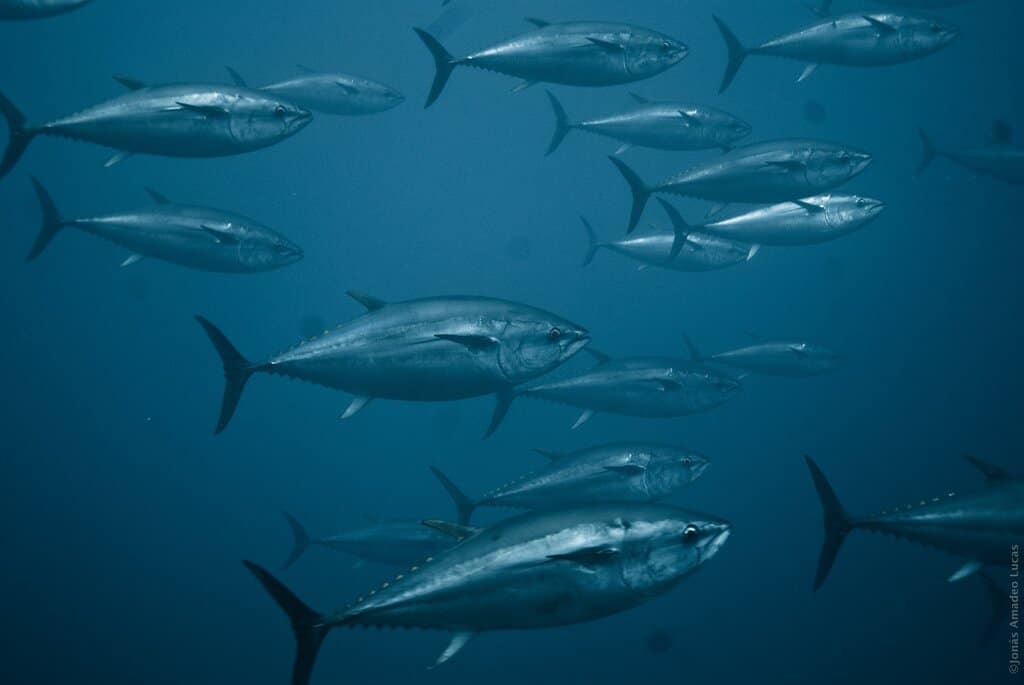Numbers for four tuna species are recovering from overfishing according to the revised list of the IUCN Red List, but sharks and rays as well as the Komodo dragon are on the decline due to worsening impacts of climate change.
—
What is Happening?
- Four commercially-fished tuna species have shown signs of population recovery following a decade of enforcement of regional fishing quotas, according to an updated assessment by the International Union for the Conservation of Nature (IUCN).
- However, the same tally reveals other marine animals, including four in 10 sharks and rays are now under threat of extinction.
- On land, the Komodo dragon have now been placed on the endangered species list.
Some good news for the environment following weeks of climate change-related floods and storms: tuna population numbers are on the rise and recovering. According to a new assessment by the IUCN, an organisation that reports on the status of the natural world and animal species around the globe, four commercially-fished tuna species are bouncing back thanks to a decade of conservation efforts.
The Atlantic bluefin tuna has leaped from the endangered species list to the least concern; the Southern bluefin tuna moved from critically endangered to endangered, while the albacore and yellowfin tuna have both been re-categorised as least concern from near threatened.
Tuna are one of the most popular seafoods, as skipjack, yellowfin, bigeye and albacore tuna are consumed by millions of people across the world. The fish is also commercially valuable and are worth about $42 billion a year in trade, according to a study by the Pew Charitable Trusts. As a result of overfishing in the commercial fishing industry, its numbers went into sharp decline in the second half of the 20th century and are only now bouncing back after enforcing regional fishing quotas and cracking down on illegal fishing.
You might also like: 15 Facts About Overfishing
However, some tuna stocks remain “severely depleted” in certain regions. For example, while the eastern population of Atlantic bluefin tuna has risen by at least 22% over the last four decades, its western Atlantic population, which spawns in the Gulf of Mexico, has declined by more than half in the same period.
The IUCN Red List update also assessed on the state of the world’s shark and ray species, and found that 37% are now threatened with extinction due to overfishing, loss and degradation of habitats, as well as the effects of climate change. The IUCN urges greater and wider effective management measures are urgently needed in the world’s oceans.
The Komodo dragon, otherwise known as the world’s largest living lizard on land, has unfortunately now been categorised as an endangered species on the IUCN Red List. The species, which is commonly found in Indonesia, is increasingly threatened by the impacts of climate change as global temperature increase and sea levels rise are expected to reduce its habitat by at least 30% in the next 45 years.
The revised IUCN Red List was released ahead of the World Conservation Congress in Marseille, France taking place between September 3-11, which the international body aims to set down stronger conservation efforts across the globe.
“Today’s IUCN Red List update is a powerful sign that, despite increasing pressures on our oceans, species can recover if states truly commit to sustainable practices,” said Dr Bruno Oberle, IUCN Director General. “States and others now gathered at the IUCN World Conservation Congress in Marseille must seize the opportunity to boost ambition on biodiversity conservation, and work towards binding targets based on sound scientific data. These Red List assessments demonstrate just how closely our lives and livelihoods are intertwined with biodiversity.”


















